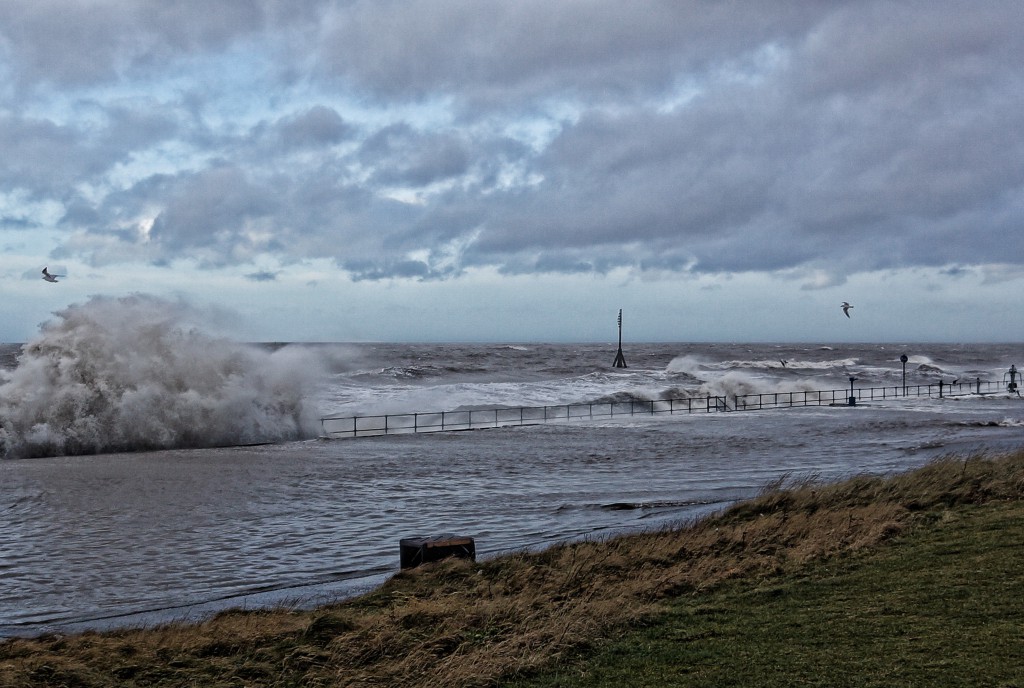Surge Dread

There are certain concerns that naturally emerge whenever a sufficiently threatening disaster looms over New York City. They vary in nuance from neighborhood to neighborhood, class to class, person to person, but in broad strokes, they tend to be fairly consistent: Will my home be okay? When will I be able to work so I can get paid? The internet will work, right? How will I get around the city?
In recent years, for a certain category of people, the latter worry has taken on a shape particular to our time and place:
Already dreading the Uber surge pricing
— Zak Kukoff (@zck) January 25, 2015
This “dread” of Uber surge pricing, whether it’s because the city’s entire transit infrastructure is on the verge of being crippled by a natural disaster or merely because you know that you are not the only drunk person who wants to flee from the bar without waiting for the subway at 1am on Saturday because, well, you’re older than you used to be and more than a little worse for the wear and you just want to get home to your flannel pajamas after spending eighty dollars on four mezcal margaritas, is by far the most persistent and popular — and galvanizing! — form of antipathy expressed for Uber, far beyond its ruthlessness, its labor practices, or its effects on transit infrastructure. It appears to be a monolithic emotion — “surge pricing sucks!” “more like gouge pricing” — but there are more subtle shadings at play: The most immediate is the natural disinclination toward paying a higher price for something, the pain of more money floating out of a checking account (if in a bizarre, superficially unreal away).
But the outrage experienced by those with a touch more foresight is actually a form of resignation and despair: The problem that these people have with surge pricing is rooted in the certainty that one day Uber, which is undercharging for its services in a drastically unsustainable way in order to fuel outrageous levels of growth, is going to win. And, when it does, after eliminating taxis and other car services — and maybe some forms of public transit in some cities! — it will extract a terrible toll for the convenience, probably when people need it most. Not because Uber is evil or attempting to punish its users, but just because it’s good business; Uber is, after all, the most publicly pitiless company of our time. (This is the same basic reason that people are afraid of — and investors still love — Amazon: Prices are unbelievably low right now, but one day, when everybody else is out of business, it will finally screw everyone in a monumental way.) Every time these people — who are, very often, prolific Uber riders — are hit by surge pricing, the jolt to their limbic system is a reminder of what’s coming. This is why they cannot be placated by being told, “well, just don’t take Uber” or “call a cab” or “ride the subway.” For them, there already is no other option but Uber.
One irony of the resentment toward surge pricing is that it’s part of what allows Uber to be indispensible. Surge pricing only goes into effect when there aren’t enough drivers in order to incentivize them to go onto the road to meet demand; increasing numbers of Uber drivers are part-time, and anecdotally, often only work when surge pricing is active. This indicates that the growth of Uber’s labor force, allowing it to meet rising overall demand, is driven, in part, by the promise of more money through surge pricing. Logically so! The aggressive fare prices that users find so attractive, allowing them to take Uber daily or near so, have continued to cut into driver wages. Surge pricing allows Uber to both encourage daily usage with low baseline fares and attract drivers, particularly when it needs them most (or in the case of a disaster, when it is the most dangerous). If Uber were simply more expensive, which it should be, many people wouldn’t take it as often as they are.
Still, agreeing to a cap on surge pricing in New York — which is dictated by its three highest prices during the prior two-month period, and amounted to 2.8x during the most recent blizzard — is savvy on Uber’s part. A cap on surge pricing placates the government for a time, and suppresses the mild pain felt by its most vocal riders, allowing them to forget, or at least be numb to, most other considerations of the larger issues inherent to a single private company controlling a large and growing portion of the transit infrastructure in cities across the country. (“But public transit isn’t good and there aren’t enough cabs where I am,” you say. What are the chances it will get better when large swaths of a city’s moneyed population, rather than advocating for a better public and semi-public infrastructure, simply choose to abandon it? Hmm.)
In the end, when you complain about surge pricing, who or what is really the object of derision? The driver, who came to get you because they were offered more money, which amounts to a living wage? The weather or time of day that created an exigent circumstance that made a lot of people want to take Uber rides at the same time? The algorithm, which may seem to create the rules, but in truth follows one, the law of supply and demand? Uber, the ultra-rational company that transparently alerts you to the fact that its still wholly optional services are coming at a premium and is just taking the money that you are lying on the table? Or your own complicity in creating a set of circumstances that allowed Uber to take your money?
Photo by Beverley Goodwin
